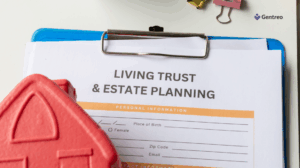
Estate planning is a crucial yet often misunderstood process that allows individuals to manage and control their assets, healthcare decisions, and the welfare of their loved ones after they pass away or become incapacitated. While many people associate estate planning with the wealthy or elderly, the truth is that it is important for anyone who wants to ensure that their wishes are carried out and their loved ones are taken care of in the future.
In this article, we will explore the fundamental aspects of estate planning, including what it involves, why it is important, and the key components that should be considered when creating an effective estate plan.
Understanding Estate Planning
At its core, estate planning is the process of preparing for the transfer of a person’s assets and responsibilities after their death or incapacitation. It involves creating a plan that outlines how your assets will be distributed, who will manage your affairs, and how your dependents will be cared for when you are no longer able to do so.
Estate planning is not just about drafting a will. It encompasses a variety of legal and financial tools that help manage your assets during your lifetime, as well as after your death. These tools can include trusts, power of attorney, healthcare directives, beneficiary designations, and more. The goal of estate planning is to ensure that your assets are distributed according to your wishes, minimize the impact of taxes, and avoid unnecessary legal complications for your heirs.
The Importance of Estate Planning
Many people put off estate planning because they believe it is only necessary later in life or that their estate is too small to require planning. However, estate planning is important for several reasons, regardless of your age, health, or financial situation.
- Ensuring Your Wishes Are Honored: Without a comprehensive estate plan, your assets may be distributed according to state law rather than your personal wishes. This could mean that your loved ones receive less than you intended or that certain beneficiaries are excluded altogether.
- Protecting Your Loved Ones: Estate planning allows you to appoint guardians for minor children, establish trusts to provide for their education and welfare, and ensure that your dependents are taken care of financially.
- Avoiding Probate: Probate is the legal process of distributing a deceased person’s assets, which can be time-consuming, costly, and public. By using estate planning tools like trusts, you can avoid or minimize the probate process, ensuring a faster and more private transfer of assets.
- Minimizing Taxes: Proper estate planning can help reduce the tax burden on your estate and your beneficiaries. This can include strategies for minimizing estate taxes, gift taxes, and capital gains taxes, allowing more of your wealth to pass to your heirs.
- Planning for Incapacity: Estate planning is not just about what happens after you die; it also involves planning for the possibility that you become incapacitated and can no longer manage your own affairs. With documents like a durable power of attorney and healthcare directives, you can appoint someone to make decisions on your behalf and ensure that your wishes are followed.
Key Components of an Estate Plan
Estate planning involves several key documents and strategies, each serving a specific purpose. Below are some of the most important components of a comprehensive estate plan:
- Will: A will is a legal document that outlines how your assets will be distributed after your death. It also allows you to name an executor to manage your estate and appoint guardians for minor children. A will is the cornerstone of most estate plans, but it is not the only document you need.
- Trusts: Trusts are legal arrangements that allow you to transfer assets to a trustee who manages them for the benefit of your beneficiaries. There are several types of trusts, including revocable living trusts, irrevocable trusts, and special needs trusts, each serving different purposes. Trusts can help avoid probate, provide for minor children or dependents with special needs, and protect your assets from creditors.
- Durable Power of Attorney: A durable power of attorney is a document that allows you to appoint someone to manage your financial affairs if you become incapacitated. This person, known as your agent, can make decisions on your behalf, such as paying bills, managing investments, and handling legal matters.
- Healthcare Directives: Healthcare directives, including a living will and healthcare power of attorney, allow you to specify your medical preferences and appoint someone to make healthcare decisions on your behalf if you are unable to do so. This ensures that your wishes regarding medical treatment, life support, and end-of-life care are respected.
- Beneficiary Designations: Certain assets, such as life insurance policies, retirement accounts, and payable-on-death accounts, allow you to name a beneficiary who will receive the asset directly upon your death. These designations override any instructions in your will, so it is important to keep them up to date.
- Letter of Instruction: A letter of instruction is a non-legal document that provides additional guidance to your loved ones after your death. It can include information about your funeral preferences, the location of important documents, and any personal messages you want to leave behind. While not legally binding, it can be a helpful supplement to your estate plan.
- Plan for Digital Assets: In today’s digital world, many people have significant online assets, such as social media accounts, digital currencies, and intellectual property. Estate planning for digital assets involves specifying how these assets should be managed and who should have access to them after your death.
Common Estate Planning Mistakes
While estate planning is essential, it is also easy to make mistakes that can undermine your efforts. Here are some common pitfalls to avoid:
- Not Having an Estate Plan: The biggest mistake you can make is not having an estate plan at all. Without a plan, your assets will be distributed according to state law, which may not align with your wishes. Your loved ones may also face unnecessary delays, expenses, and conflicts.
- Failing to Update Your Plan: Life events such as marriage, divorce, the birth of a child, or the death of a beneficiary should prompt you to update your estate plan. Failing to do so can result in outdated or incorrect instructions that do not reflect your current wishes.
- Not Planning for Incapacity: Many people focus solely on what happens after their death and neglect to plan for the possibility of incapacity. Without a durable power of attorney and healthcare directives, your loved ones may face difficulties managing your affairs if you become incapacitated.
- Overlooking Beneficiary Designations: Beneficiary designations on retirement accounts, life insurance policies, and other assets take precedence over instructions in your will. It is important to review and update these designations regularly to ensure they reflect your current intentions.
- Ignoring Tax Implications: Estate taxes and other tax considerations can have a significant impact on the distribution of your assets. Proper planning can help minimize the tax burden on your estate and ensure more of your wealth passes to your beneficiaries.
Getting Started with Estate Planning
If you are new to estate planning, it can be overwhelming to know where to start. The best approach is to begin by taking stock of your assets, considering your goals, and thinking about who you want to benefit from your estate. From there, you can start putting together the necessary documents and strategies to achieve your objectives.
Estate planning is an essential process for anyone who wants to protect their assets, ensure their wishes are followed, and provide for their loved ones. By understanding what estate planning involves and taking the time to create a comprehensive plan, you can have confidence that your affairs will be handled according to your wishes, both during your lifetime and after your death.
Don’t wait until it’s too late; start your estate planning journey with Gentreo today. By doing so, you’ll not only protect your loved ones but also gain the peace of mind that comes with knowing your legacy is secure. Click here to join now. https://www.gentreo.com/
This article is for informational purposes only and should not be considered legal advice. Consult with a qualified attorney or estate planning professional for personalized guidance.










